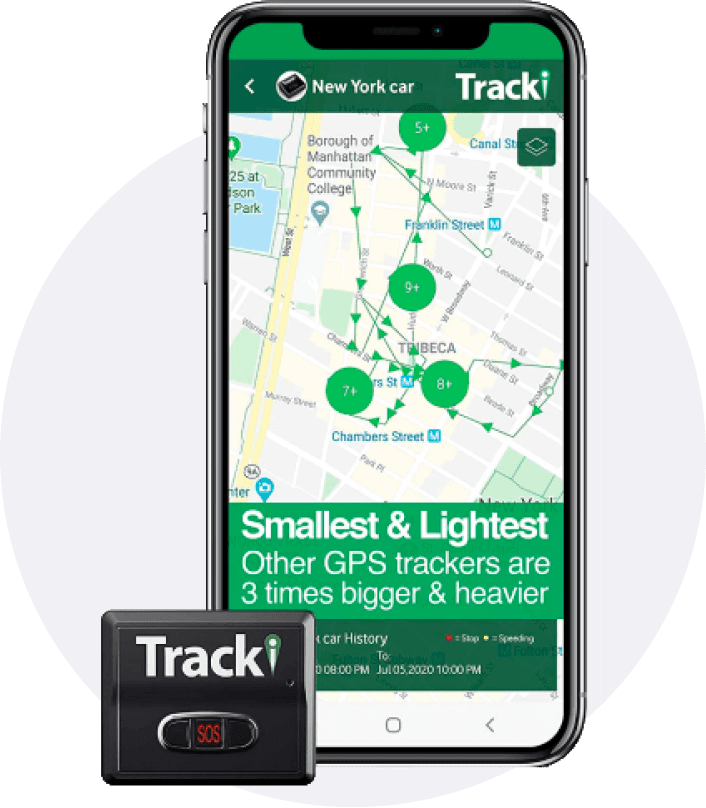Exactly How GPS Tracking Can Improve Your Organization Procedures
Exactly How GPS Tracking Can Improve Your Organization Procedures
Blog Article
Navigating the Future of GPS Monitoring: Technologies, Challenges, and Opportunities Ahead
As we stand at the crossroads of technical improvements and social ramifications, the landscape of GPS tracking is positioned for a transformative trip ahead. With great innovation comes terrific obligation, as data privacy concerns loom large and protection obstacles in General practitioner monitoring raise essential inquiries about safeguarding sensitive details.
Evolution of GPS Innovation
The Advancement of GPS Modern technology has actually been noted by substantial innovations in precision, insurance coverage, and performance over the years. At first created for military objectives, general practitioner technology has progressed to end up being an ubiquitous tool in various sectors, including transportation, logistics, agriculture, and personal navigation. Early general practitioner systems were identified by limited coverage, reduced precision, and bulkier hardware needs. Nevertheless, with ongoing technical technologies, GPS has transitioned to more efficient and specific systems that provide international coverage and improved accuracy.
One key landmark in the development of GPS technology was the growth of Discerning Availability (SA) in the 1990s, which intentionally weakened the accuracy of private General practitioner signals. As GPS innovation continues to advance, we can anticipate further enhancements in coverage, accuracy, and efficiency, opening up new possibilities for advancement and applications throughout different industries.
Real-Time Monitoring Improvements
Building on the improvements in GPS modern technology that have actually reinvented accuracy and coverage, real-time monitoring has arised as a critical location of development with profound effects across various sectors. Real-time monitoring advancements allow services and companies to keep an eye on assets, lorries, and personnel immediately, giving valuable understandings for decision-making procedures - gps tracking. By leveraging real-time data, companies can enhance operational efficiency, improve client service, and make certain the safety and security and safety and security of their assets
One of the key advancements in real-time monitoring is the assimilation of artificial knowledge and device knowing algorithms, which make it possible for predictive analytics and anomaly discovery. These abilities permit for aggressive upkeep organizing, route optimization, and risk reduction techniques. The development of real-time monitoring systems has led to the advancement of adjustable dashboards and mobile applications, empowering users to access important details anytime, anywhere.
Data Privacy Problems
Information privacy home problems incorporate numerous elements, including the storage space, sharing, and retention of place data. Organizations should implement durable safety and security actions to safeguard GPS tracking data from cyber threats and information breaches. Transparent policies pertaining to information collection methods and the function of monitoring are important to develop trust fund with consumers and make sure conformity with data security policies.

Safety And Security Obstacles in GPS Tracking
Addressing information privacy issues in GPS tracking is delicately connected to mitigating the security tests that emerge from prospective susceptabilities in the innovation. One of the primary safety obstacles in GPS tracking is the danger of unapproved access from this source to delicate area data - gps tracking. Cyberpunks can intercept general practitioner signals, manipulate place information, or perhaps track people without their consent. This not just invades personal privacy however also poses severe safety risks.
Another safety challenge is the capacity for obstructing or spoofing general practitioner signals. By transmitting incorrect signals or interfering with genuine ones, destructive stars can deceive GPS receivers and manipulate place information. This positions dangers not just for specific customers however additionally for governmental and army applications that depend on precise positioning information. Carrying out robust encryption, verification measures, and signal verification protocols are important action in dealing with these safety difficulties in GPS monitoring.
Arising Opportunities in the Market
The expanding area of GPS tracking modern technology offers a myriad of promising opportunities for sector growth and innovation. One crucial chance exists in the expansion of General practitioner monitoring applications past conventional sectors. GPS monitoring can change individual treatment by making it possible for remote tracking of crucial signs and making certain timely clinical support.
In addition, the raising need for linked gadgets and IoT services presents a ripe opportunity for GPS monitoring firms to increase their offerings and create ingenious solutions that cater to a more connected globe. By exploiting on these emerging opportunities, GPS tracking firms can place themselves for sustained development and success in the dynamic landscape of the market.
Final Thought
In final thought, the future of GPS tracking is marked by continual evolution and innovation in modern technology. Real-time monitoring improvements and emerging possibilities present encouraging potential customers for the sector. Data personal privacy concerns and safety and security difficulties continue to be substantial hurdles that need to be resolved. As the sector moves on, navigating these difficulties will certainly be essential to guarantee the continued development and success of general practitioner monitoring technology.
With excellent development comes great duty, as data personal privacy worries loom huge and protection obstacles in General practitioner tracking raise Bonuses relevant inquiries concerning safeguarding sensitive info.With the rapid expansion of GPS monitoring modern technology in various markets, addressing information privacy problems has ended up being a critical essential for both consumers and companies alike. The collection of place information through GPS tracking increases substantial personal privacy problems, as it makes it possible for the tracking of individuals' behaviors and motions. Organizations using General practitioner monitoring should focus on securing this information to stop unapproved gain access to or abuse that might endanger individuals' privacy rights.
Companies should carry out durable protection procedures to secure GPS tracking data from cyber dangers and information violations.
Report this page